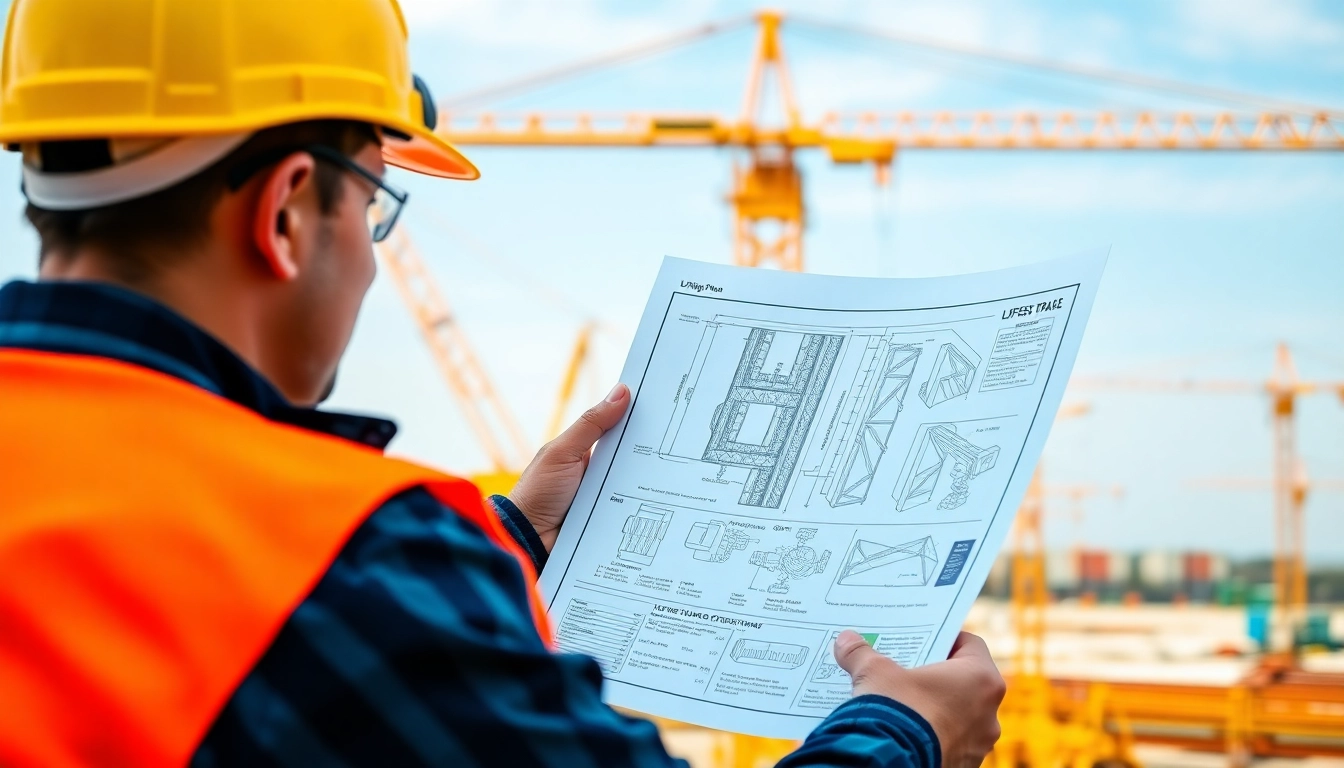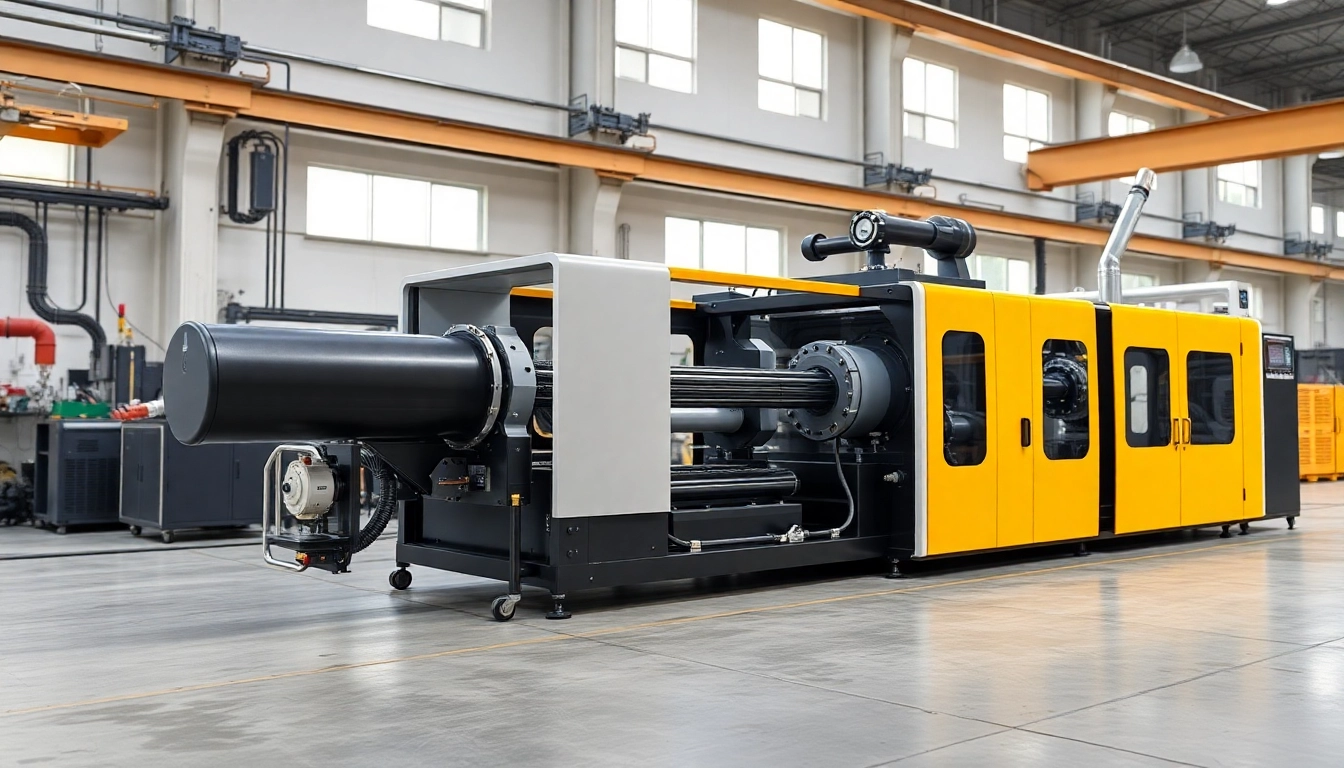Understanding the Level 5 NVQ Diploma in Controlling Lifting Operations
What is the Level 5 NVQ Diploma?
The Level 5 NVQ Diploma in Controlling Lifting Operations is a professional qualification designed for individuals who are involved in planning and overseeing lifting operations within the construction and engineering sectors. This qualification is regulated and recognized by various industry bodies, allowing practitioners to demonstrate their competency in managing lifting operations safely and effectively. The diploma encapsulates a blend of theoretical knowledge and practical application, ensuring that candidates are well-equipped to handle the complexities of lifting operations in real-world scenarios.
Importance of Lifting Operations in Construction
Lifting operations are crucial in construction and heavy industries. They encompass activities such as the movement of heavy equipment, materials, and machinery using cranes and other lifting equipment. Given the risks associated with these operations—including potential accidents and equipment failures—the significance of having qualified personnel cannot be overstated. A well-trained individual in lifting can help mitigate risks, ensuring that operations are performed safely and within regulatory compliance.
Key Competencies Developed Through the Diploma
The Level 5 NVQ Diploma covers several vital competencies essential for effective lifting operations. These include:
- Risk Assessment: Candidates are trained on how to identify potential hazards and assess risks associated with lifting operations.
- Planning and Execution: The qualification equips learners with the skills needed to plan lifting operations and manage the execution process efficiently.
- Communication: Effective communication strategies are taught to ensure all stakeholders are aware of lifting plans and safety protocols.
- Compliance: Learners understand the legal obligations and industry standards that govern lifting operations.
Preparing for the NVQ Assessment
Study Materials and Resources
To successfully prepare for the NVQ assessment, it’s essential to access comprehensive study materials. Recommended resources include:
- Textbooks that cover lifting operations and safety regulations.
- Online courses and webinars providing insights into current industry practices.
- Guidance from experienced assessors who can provide valuable feedback.
- Sample test papers and past assessments to familiarize oneself with the question formats.
One particularly useful resource can be found at level 5 nvq diploma in controlling lifting operations answers, which offers insights and practice materials tailored for this diploma.
Structuring Your Answers Effectively
Structured responses are crucial when answering NVQ questions. Candidates should focus on:
- Clarity: Answers should be clear and to the point.
- Evidencing Competence: Provide examples from experience to demonstrate understanding.
- Following Guidelines: Adhere to any specific assessment criteria laid out by the governing body.
Common Mistakes to Avoid
When preparing for the NVQ assessment, candidates often make several common errors:
- Not thoroughly understanding the question requirements.
- Failing to provide relevant examples to support claims.
- Ignoring the importance of safety regulations and compliance within answers.
Practical Tips for Lifting Operations
Safety Protocols and Best Practices
Safety is paramount in lifting operations. Therefore, understanding and implementing safety protocols is crucial. Key best practices include:
- Conducting Risk Assessments: Always evaluate the site and the load to identify potential hazards.
- Using Appropriate Equipment: Select and maintain equipment suited to the specific lifting task.
- Training Personnel: Ensure all team members are properly trained and aware of safety protocols.
- Regular Inspections: Conduct routine checks of equipment safety and compliance.
Planning and Executing Lifts
Successful lifting operations hinge on meticulous planning. A well-laid plan should address:
- Load Weight and Size: Assess the load accurately to determine the right equipment and technique.
- Environmental Conditions: Consider factors such as wind, ground conditions, and obstacles in the lift path.
- Lift Plans: Develop detailed lift plans that outline every step and assign roles to team members.
Real-world Case Studies
Examining real-world cases can reinforce the theory learned during the diploma process. Successful projects often highlight the importance of planning, team communication, and safety adherence. For instance, analyzing a large-scale construction project where effective lifting operations were implemented can provide students with a practical perspective on managing similar tasks.
Answering NVQ Questions Successfully
Understanding Question Formats
NVQ assessments can come in various formats, including:
- Multiple Choice Questions: These assess your knowledge of specific details.
- Case Studies: Here, you’ll analyze scenarios and provide practical solutions.
- Written Answers: Elaborate on your personal experiences related to the topic.
Utilizing Keywords in Your Answers
Incorporating relevant keywords into your responses enhances clarity and relevance. Understand the core concepts related to lifting operations, and ensure they’re evident in your answers. Keywords not only exhibit your grasp of the subject but also align your response with assessment criteria.
Time Management Strategies During Assessments
Time management is vital during any assessment. Here are strategies to help you perform effectively:
- Prioritize Questions: Allocate time based on question difficulty and marks available.
- Practice Under Timed Conditions: Simulate exam conditions during your preparation.
- Stay Focused: Minimize distractions and focus solely on the task at hand.
Continuing Professional Development
Further Learning Opportunities
The learning does not stop at the diploma. Continuous professional development is essential in the construction industry. Opportunities may include:
- Advanced courses focusing on specific lifting equipment and methods.
- Health and safety workshops to stay updated with legislation.
- Seminars on innovative practices and technologies in lifting operations.
Career Paths After the Diploma
Obtaining a Level 5 NVQ Diploma opens several career avenues. Professionals can advance into roles such as:
- Lift Operations Manager: Overseeing all aspects of lifting operations.
- Site Manager: Managing construction sites and ensuring compliance with health and safety regulations.
- Consultant: Providing expertise and guidance on lifting operations to various organizations.
Networking with Industry Professionals
Networking with peers and experts in the field enhances career progression. Attend industry events, join relevant organizations, and utilize platforms like LinkedIn to connect with professionals in lifting operations. Engaging with others in the field can lead to mentorship opportunities and collaborations that further your knowledge and career prospects.



